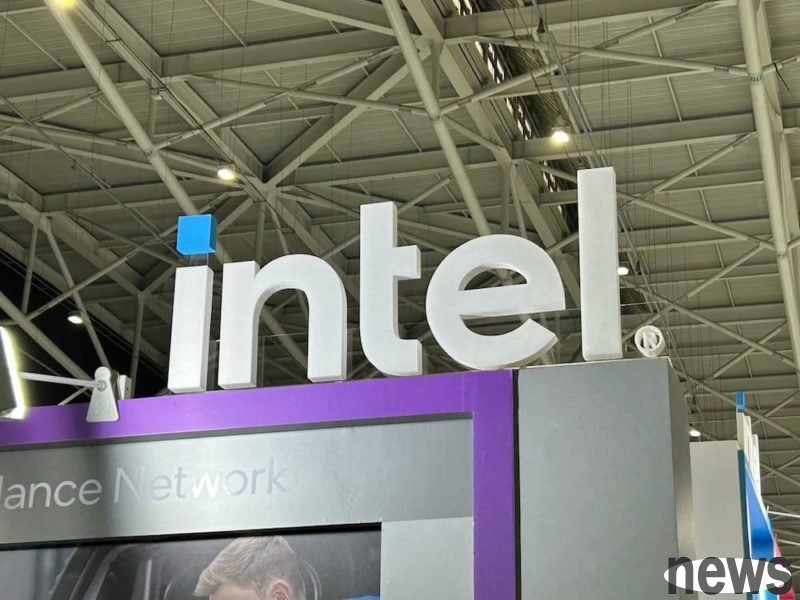
Intel has been in constant waves recently. Former executive Craig Barrett recently proposed ten key points in the Fortune column, shouting "Only Intel can save the American chip industry" and "Samsung and Taiwan Power are not planning to bring the first-hand manufacturing technology to the United States in the short term." However, industry insiders believe that the current battle to advance the process is to "develop Israeli war", and the biggest problem Intel is currently facing is to "not fight".
Recently, Intel's situation has been difficult. In addition to the uncertainty of financial and economic situations, it has also fallen into a political debate dilemma, and the future of the crystal OEM department is even more difficult to grasp. However, Barrett bluntly stated in the Fortune column that the United States has no choice but to rely on Intel in chip manufacturing.
"Yes, the United States needs Intel!" Barrett emphasized, because Intel is the only American company that can provide the most advanced logical manufacturing capabilities. In addition, Samsung and Taiwan Electric have no plans to bring the most advanced manufacturing technology to the United States in the short term. But this statement is actually controversial, because both Telco and Samsung are currently preparing to produce 2-nanometer processes in the United States and plan related lines.
Barrett believes that large American customers such as NVIDIA, Apple, and Google must find a "second option" other than TEU, which is reliable and NTD, for the company's flagship products, including price, geographic stability and supply chain security, and Intel is the only option.
To achieve the water level of NT$40 billion in production capacity, Barrett admitted that it would require at least $40 billion, which is far higher than the grant fund of the US "CHIPS Act". But he suggested that the government should not only provide purely with Intel, but should formulate plans to allow companies such as NVIDIA and Apple to invest in Intel's advanced processes, exchange shares and guaranteed supplies, and help the company promote smoothly.
As for why they need to invest? Barrett believes that domestic supply, second source, national security, codes for consultation with Taiwan, etc. are all one of the reasons. If the US government has action, it will catalyze this with a 50% tax regulating tax on the first-class semiconductor import tax.
But when Chen Liwu mentioned that "unless the customer signs, they will not invest in new technologies (14A)," Barrett criticized "simple is a joke". To win in this field, you must be the leader of the technology, not a follower. It takes years to develop a process technology, and no customer is willing to sign a contract for "secondary" technology.
Barrett also believes that fortunately Intel has good technical foundations, such as high-number pore EUV, back power supply, etc. As long as you invest now, you still have the opportunity to win the lead. Now there is only the problem of "short money". He also called on the U.S. government and board of directors, "If your real goal is to save Intel and retain its power to the core of the United States, then you should solve the real problem - invest in Intel immediately, lock in commitment customers, ensure national security, etc."
Advanced processes require "fighting with war", and Intel should now clean up the battlefield and wait for the next wave of attacksHowever, when it comes to Barrett's statement, industry insiders believe that the current status of advanced production must start "fighting with war". Intel's problem is that it has not fought, and Samsung has fought too few wars, which also makes the reason why Taiwan Power is powerful. Therefore, what Chen Liwu should do now is to clean up the battlefield, first do the necessary processes, and start doing real "service".
But from Barrett's statement, it is actually similar to Chen Liwu's strategy. Chen Liwu has been committed to revitalizing Intel's crystal manufacturing, with the goal of finding external customers to prove that the huge expenditures brought by this type of investment are reasonable. At the end of last month, Intel said it would further relax the construction of a super-large semiconductor manufacturing factory in Ohio to meet customer needs.
Although Intel's past importance came from the once brilliant US chip manufacturing position, its influence is limited now and we can only wait for the results of executive chairman Chen Liwu and US President Trump. The outside world expects that this will help solve the company's difficulties.
However, in past comments, it can be seen that Chen Liwu has long known that the relationship between the United States and China is difficult. When he was asked about the relationship between the two countries at an event at the University of California, Burkeley in 2007, Chen Liwu said that China's primary task is to develop economy and hope to cooperate with the United States. "If the US government allows it, China will be a good partner, but unfortunately, sometimes this will become a good opportunity to attack China."
Former CEO Craig Barrett Claims That Only Intel Can Save the US Chip Industry, Not TSMC; Advises the Administration to Force Big Tech to Invest in the Company’s Chip Capacity Former Intel CEO Craig Barrett outlines plan to save Intel and America’s advanced chip manufacturing Extended reading: Push 2 nanometers ignore industry changes, daily: Rapidus requires "B plan" Chinese official media re-approved NVIDIA H20 chip: not advanced, not environmentally friendly or safe